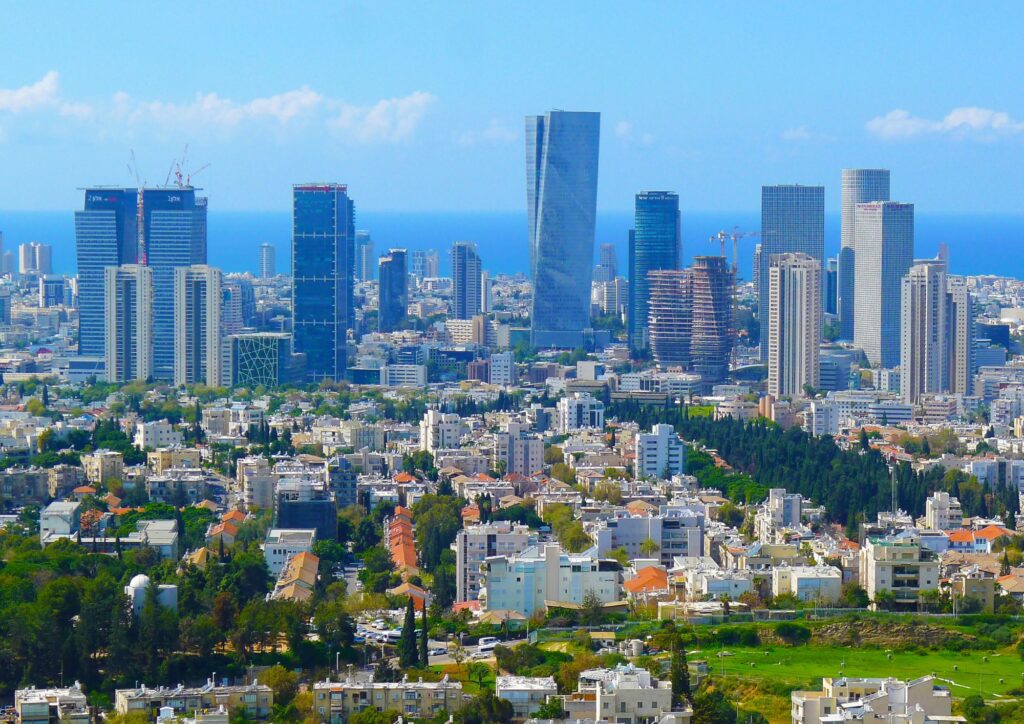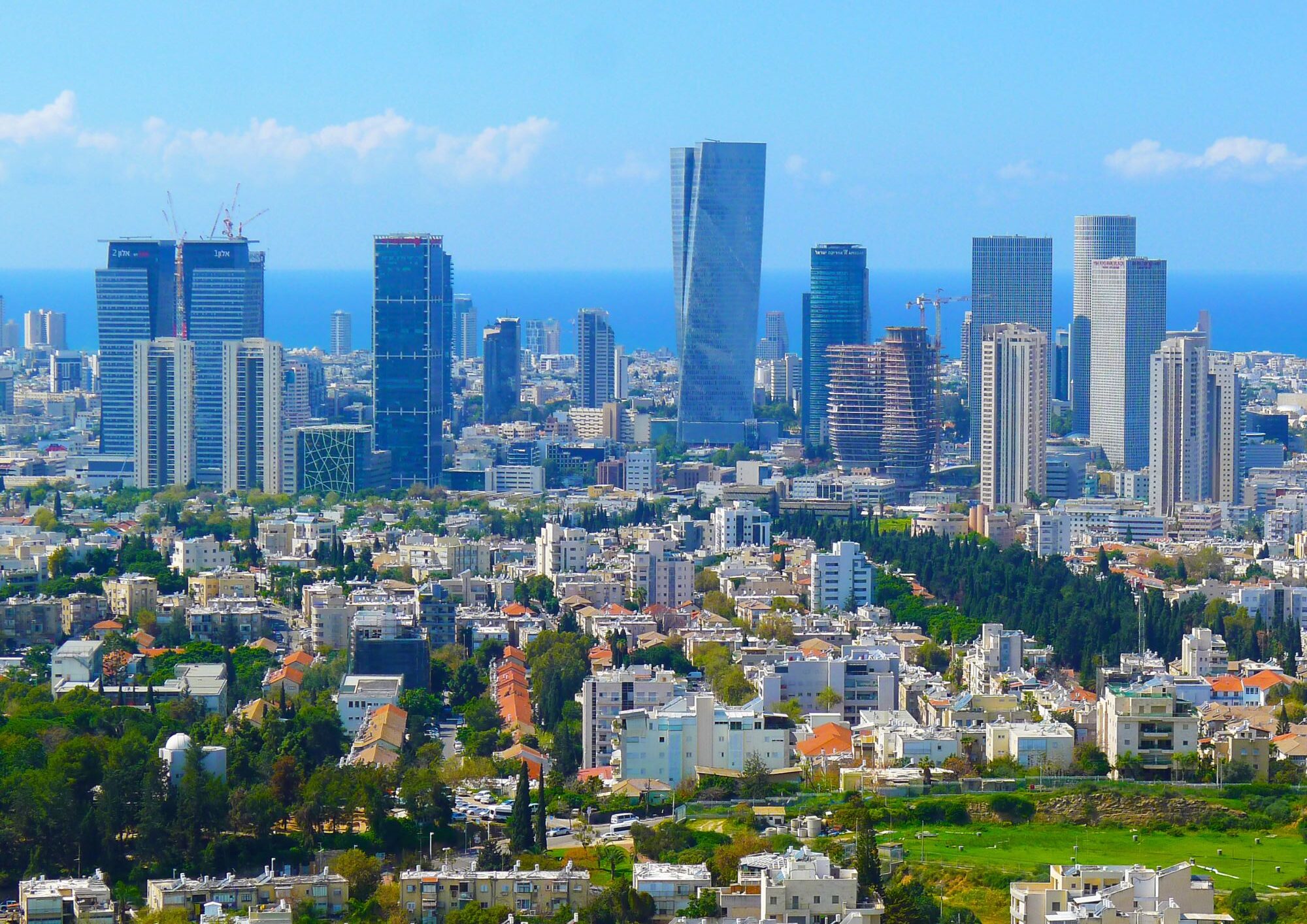Tel Aviv Real Estate Market Trends 2025
Introduction

Tel Aviv continues to stand out as Israel’s most dynamic and high-value real estate market. Known for its vibrant lifestyle, economic strength, and prime coastal location, the city has long attracted both local and international buyers. The Tel Aviv real estate market is synonymous with high prices and relentless demand. This article explores the current market conditions, recent price trends, and the outlook for 2025, offering insight into what’s driving the city’s competitive housing scene.
Tel Aviv Real Estate Market Overview
The Tel Aviv real estate market is shaped by several strong fundamentals. A chronic housing shortage, rapid population growth, and a robust economy continue to support high demand. As a global city and Israel’s economic engine—especially in tech and finance—Tel Aviv remains a magnet for professionals, investors, and expatriates. This sustained interest keeps the market competitive and property values high.
Recent Trends and Price Movements
Over the past year, Tel Aviv real estate prices have continued to climb, despite broader economic and security challenges. According to Times of Israel, home prices rose around 8% in 2024. Buyitinisrael.com reports an even sharper increase of 9.4%, underscoring the market’s resilience. Factors like low interest rates earlier in the decade, post-COVID demand recovery, and limited housing supply have all contributed to this sustained price growth.
Demand Outpacing Supply
Demand in Tel Aviv continues to outstrip supply. The city’s strong tech sector attracts high-earning professionals, while high birth rates and growing foreign investment contribute further to housing demand. As SandsOfWealth.com notes, Tel Aviv’s housing shortage and expanding population are key reasons prices remain on the rise.
Construction and Supply Challenges
Efforts to increase housing supply face multiple obstacles. Limited land availability in the city core, slow approval processes, and bureaucratic delays hamper new developments. Rising construction costs, labor shortages, and material inflation have also slowed the pace of new building projects, as highlighted by Times of Israel. These challenges mean that even new construction is struggling to keep up with demand.
Neighborhood Price Highlights
Prices across Tel Aviv vary widely by neighborhood. Central and northern areas such as Neve Tzedek, Tzameret Park, and Ramat Aviv command premium prices due to their location and prestige. In contrast, older or peripheral neighborhoods offer slightly more affordable options. According to Buyitinisrael.com, the average price of an apartment in Tel Aviv is around ₪4 million (over $1 million USD), roughly double the national average.
Luxury vs. Affordable Areas
Luxury neighborhoods with oceanfront towers and boutique developments continue to see strong interest from high-net-worth buyers. Meanwhile, fringe areas and older districts are gaining attention from investors seeking value and long-term growth potential. These up-and-coming neighborhoods offer relatively lower entry points while still benefiting from the city’s overall appreciation.
Rental Market Trends
The rental market in Tel Aviv mirrors its ownership trends—tight supply and rising demand. Rents have increased by approximately 5% year-over-year, reaching an average of ₪7,000 per month, according to SandsOfWealth.com. Rental demand surged by 42% as young professionals continue to flood the city. With no rent control and limited new rental units, landlords remain in a strong position.
Investor Insights and Outlook
For investors, the Tel Aviv real estate market remains a compelling long-term play. Despite relatively low rental yields (around 3% on average according to NBN.org.il), many buyers are banking on continued capital appreciation. Investors looking for stronger yields are exploring emerging neighborhoods where price points are lower and growth potential remains high.
Looking ahead to 2025, most analysts expect price growth to continue, though potentially at a more moderate pace. Factors like rising interest rates, inflation, and potential government housing initiatives could influence the market’s trajectory. Nonetheless, the underlying demand-supply imbalance remains unchanged, keeping upward pressure on prices.
Conclusion
The Tel Aviv real estate market continues to reflect strong demand, rising prices, and limited supply. As 2025 unfolds, buyers and investors can expect the trend of rising Tel Aviv real estate prices to continue, albeit with some moderation. With its global appeal and economic strength, Tel Aviv is set to remain Israel’s priciest and most active market. Staying informed on Tel Aviv real estate market trends is essential for anyone considering a move or investment in the city.



